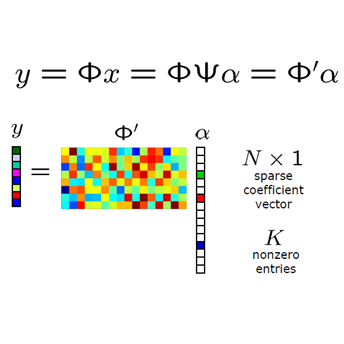In 1-bit compressive sensing, each measurement is quantized to a single bit, namely the sign of a linear function of an unknown vector, and the goal is to accurately recover the vector. While it is most popular to assume a standard Gaussian sensing matrix for 1-bit compressive sensing, using structured sensing matrices such as partial Gaussian circulant matrices is of significant practical importance due to their faster matrix operations. In this paper, we provide recovery guarantees for a correlation-based optimization algorithm for robust 1-bit compressive sensing with randomly signed partial Gaussian circulant matrices and generative models. Under suitable assumptions, we match guarantees that were previously only known to hold for i.i.d.~Gaussian matrices that require significantly more computation. We make use of a practical iterative algorithm, and perform numerical experiments on image datasets to corroborate our theoretical results.
翻译:在 1 位压缩传感器中,每种测量都量化为一位数,即未知矢量的线性函数符号,目标是准确回收矢量。尽管最受欢迎的是假设一个标准高斯感测矩阵用于1位压缩传感器,但使用结构化的感测矩阵,如部分高斯环流矩阵等结构化的感测矩阵,由于其更快的矩阵操作而具有重要的实际意义。在本文件中,我们为基于相关优化逻辑的强力1位压缩传感器提供了恢复保证,该模型由随机签名的部分高斯环流矩阵和基因模型组成。在适当的假设下,我们匹配以前只为i.i.d.~Gausian矩阵所知道的保证,这些保证需要大量计算。我们使用实用的迭代算法,并在图像数据集上进行数字实验,以证实我们的理论结果。


